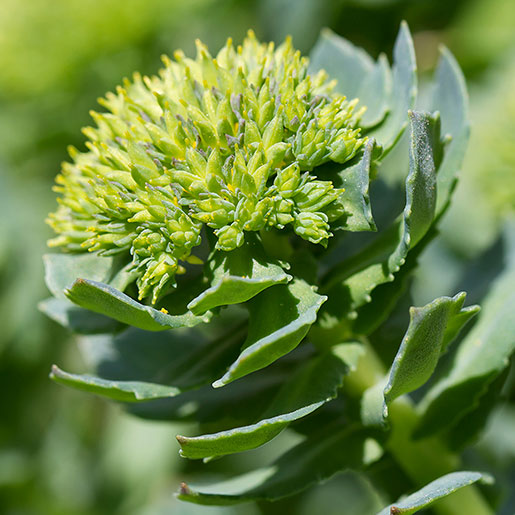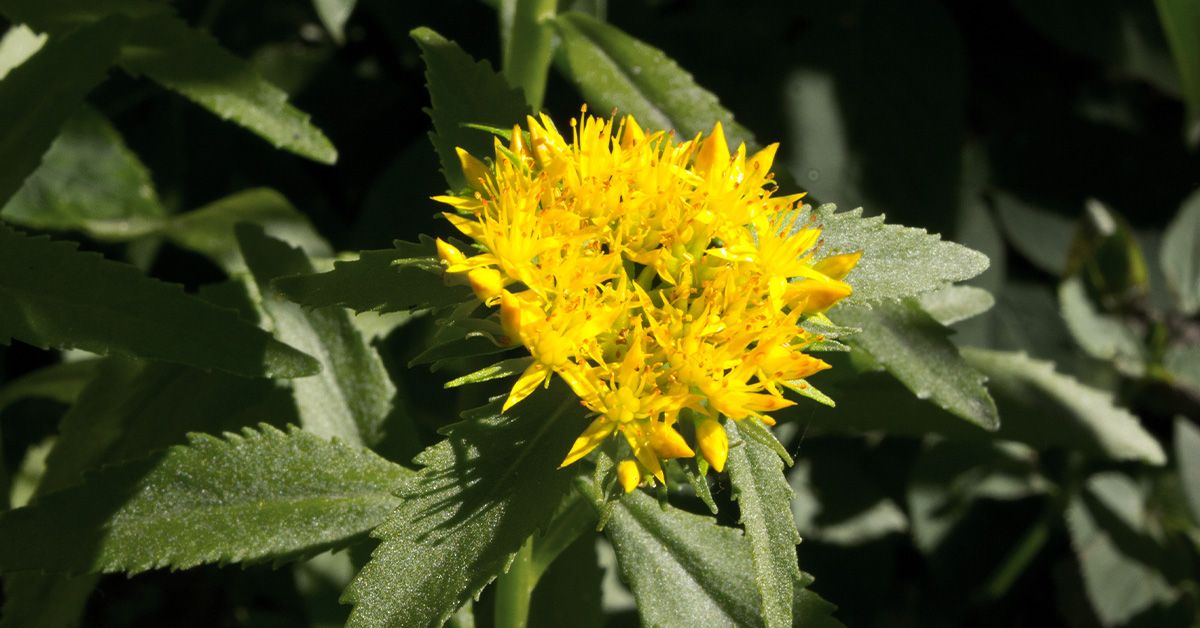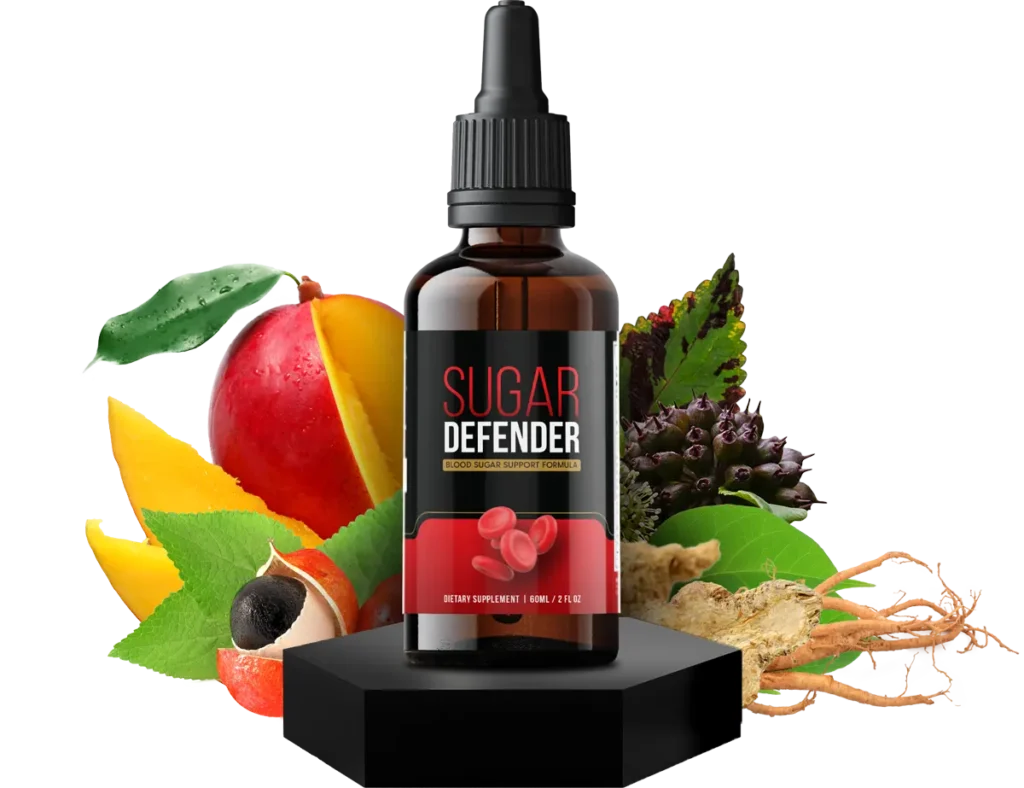Rhodiola Rosea for Mental Clarity
How This Arctic Adaptogen Fights Brain Fog and Boosts Cognitive Energy

In today’s fast-paced world, an estimated 600 million people worldwide struggle with brain fog – that frustrating mental cloudiness that makes concentration feel impossible and clear thinking a distant memory. If you’ve ever felt like you’re thinking through molasses, struggling to focus on simple tasks, or experiencing that mental exhaustion that no amount of coffee seems to fix, you’re not alone.
Modern lifestyle factors including chronic stress, poor sleep quality, information overload, and sedentary habits have created an epidemic of cognitive fatigue. While many reach for synthetic stimulants or endless caffeine to combat mental tiredness, these quick fixes often lead to crashes, jitters, and long-term dependency.
Enter Rhodiola Rosea
An extraordinary Arctic plant that Vikings once treasured as their secret weapon for mental stamina and physical endurance. Known as the “Golden Root” for its remarkable golden-colored interior, this adaptogenic herb has been quietly supporting human cognitive performance for over 3,000 years.
What makes rhodiola particularly compelling in our modern context is its unique ability to enhance mental clarity without the typical stimulant side effects. Recent clinical research has validated what traditional cultures have known for millennia: rhodiola rosea can significantly improve cognitive function, reduce mental fatigue, and boost overall brain energy through natural, sustainable mechanisms.
What You’ll Learn in This Guide
- How rhodiola works to clear brain fog through specific mechanisms
- 7 evidence-based cognitive benefits backed by scientific research
- Optimal dosing strategies for mental clarity and sustained energy
- Practical implementation guide for daily cognitive optimization
What is Rhodiola Rosea? The Arctic Adaptogen Explained

Botanical Background and Natural Habitat
Rhodiola rosea, scientifically classified as a member of the Crassulaceae family, is a remarkable perennial flowering plant that thrives in some of Earth’s most challenging environments. This hardy succulent grows exclusively in high-altitude regions and Arctic zones across Scandinavia, Russia, Central Asia, and select mountainous areas of North America, typically at elevations exceeding 7,000 feet.
The plant’s distinctive golden root system – which gives rhodiola its “Golden Root” nickname – has evolved sophisticated biochemical defense mechanisms to survive extreme temperature fluctuations, intense UV radiation, and oxygen-poor conditions. These same stress-adaptation compounds that help the plant flourish in harsh Arctic conditions are precisely what make rhodiola such a powerful cognitive enhancer for humans.
Historical Context and Traditional Use
The documented use of rhodiola spans over three millennia, with the earliest records found in ancient Chinese medicine texts dating back to 77 AD. However, its most legendary association comes from Scandinavian and Viking culture, where warriors consumed rhodiola preparations before battles to enhance physical stamina and mental focus during long sea voyages and combat.
In traditional Russian and Siberian medicine, rhodiola was considered so valuable that its harvest locations were kept as closely guarded family secrets passed down through generations. Soviet researchers in the 1960s-1980s conducted extensive classified studies on rhodiola’s performance-enhancing properties, particularly for military personnel, astronauts, and Olympic athletes operating under extreme stress conditions.
Active Compounds: The Science Behind the Benefits
Rosavins (3-4% in quality extracts)
- Rosavin: The most abundant and researched compound
- Rosin: Contributes to neuroprotective effects
- Rosarin: Supports stress response modulation
Salidroside (1-2% in quality extracts)
- Primary bioactive phenylpropanoid glycoside
- Responsible for most cognitive benefits
- Shows strongest anti-fatigue properties
The Critical 3:1 Ratio
The naturally occurring ratio of rosavins to salidroside in authentic rhodiola rosea is approximately 3:1, and high-quality supplements maintain this ratio to ensure optimal bioactivity. This specific ratio is crucial because research indicates that rosavins and salidroside work synergistically – each compound amplifying the effects of the other.
The Science Behind Rhodiola and Brain Fog
Understanding Brain Fog: More Than Just Mental Tiredness
Brain fog isn’t a medical diagnosis but rather a collection of cognitive symptoms that millions experience daily. Characterized by mental cloudiness, difficulty concentrating, memory problems, and reduced mental stamina, brain fog can significantly impact work performance, academic achievement, and quality of life.
Neuroinflammation
Chronic low-grade inflammation in the brain disrupts neural communication and impairs cognitive processing. Inflammatory cytokines like IL-6 and TNF-α directly interfere with neurotransmitter synthesis.
Neurotransmitter Imbalances
Deficiencies in key neurotransmitters – particularly dopamine, norepinephrine, and serotonin – lead to decreased focus, motivation, and mental energy.
Mitochondrial Dysfunction
Brain cells are extremely energy-demanding. When cellular energy production falters, cognitive performance suffers immediately.
HPA Axis Dysregulation
Chronic stress disrupts the hypothalamic-pituitary-adrenal axis, leading to cortisol imbalances that impair memory and executive function.
How Rhodiola Works in the Brain
Rhodiola rosea addresses brain fog through multiple complementary mechanisms, making it uniquely effective for comprehensive cognitive enhancement:
Stress Response Modulation
Rhodiola functions as a true adaptogen, helping normalize physiological responses to stress rather than simply stimulating or sedating the nervous system.
- HPA Axis Optimization: Clinical studies show rhodiola normalizes cortisol rhythms, reducing excessive morning cortisol by 23% in stressed adults after just four weeks.
- Stress Protein Regulation: Increases production of heat shock protein 70 (HSP70), protecting brain cells from stress-induced damage.
- Adaptive Stress Response: Enhances the body’s ability to adapt to and recover from stress, improving resilience over time.
Neurotransmitter Enhancement
Rhodiola’s cognitive benefits largely stem from its ability to optimize key neurotransmitter systems:
- Monoamine Support: Inhibits MAO-A and MAO-B enzymes that break down dopamine, norepinephrine, and serotonin.
- Dopamine Enhancement: Increases dopamine availability in the prefrontal cortex, enhancing executive function and working memory.
- Norepinephrine Optimization: Supports balanced levels, improving alertness without overstimulation.
Neuroprotective Mechanisms
- Antioxidant Activity: Salidroside provides powerful antioxidant protection specifically within brain tissue.
- Mitochondrial Support: Enhances mitochondrial biogenesis and function in brain cells, improving cellular energy production.
- Blood-Brain Barrier Protection: Maintains barrier integrity for optimal nutrient delivery and toxin protection.
7 Evidence-Based Benefits of Rhodiola for Mental Clarity
Reduces Mental Fatigue and Exhaustion
A groundbreaking study involving 161 participants with chronic fatigue symptoms revealed that rhodiola supplementation led to a 25% improvement in concentration scores and a 27% reduction in overall fatigue severity after just 8 weeks.
Improves Focus and Attention Span
Clinical trials show participants taking 300mg of rhodiola extract daily demonstrated a 23% improvement in sustained attention tasks compared to placebo, with benefits maintained throughout 4-hour testing sessions.
Enhances Stress Resilience
Research with medical students during exam periods showed rhodiola supplementation improved memory test performance by 15% during high-stress periods compared to baseline performance during low-stress periods.
Supports Mood and Mental Energy
Clinical trials for mild to moderate depression showed rhodiola extract (340-680mg daily) produces significant improvements in mood scores while simultaneously enhancing cognitive function.
Boosts Processing Speed
Research using computerized cognitive testing consistently showed 12% faster reaction times in choice reaction tasks after 6 weeks of rhodiola supplementation.
Promotes Better Sleep Quality
Sleep quality studies showed that morning rhodiola supplementation improves sleep efficiency and reduces time to fall asleep, with 31% reporting significantly improved morning mental clarity.
Enhances Learning and Memory
Learning capacity studies showed rhodiola supplementation improved both information acquisition and retention, with students showing 22% better performance on delayed recall tests compared to placebo groups.
Ready to Experience Mental Clarity?
Discover how rhodiola rosea can transform your cognitive performance and help you achieve sustained mental energy naturally.
How to Use Rhodiola Rosea for Optimal Results
Dosage Guidelines: Finding Your Cognitive Sweet Spot
Beginners
Start with 200mg daily for 2 weeks
Standard Dose
300-400mg daily for most adults
High Stress Periods
Up to 600mg daily (divided into two doses)
Optimal Timing Strategies
Morning Energy Protocol
- 7:00 AM: Take rhodiola on empty stomach
- 7:30 AM: Light physical activity (5-10 minutes)
- 8:00 AM: Healthy breakfast
- Peak effects: Typically 2-4 hours post-dose
Forms and Quality Considerations
Standardized Extracts
Recommended – 3% rosavins, 1% salidroside ratio
Whole Root Powder
Variable potency, less predictable effects
Liquid Tinctures
Faster absorption, shorter shelf life
Safety, Side Effects, and Considerations
Excellent Safety Profile
- Well-tolerated in clinical studies with 1,500+ participants
- Adverse event rates less than 3%
- Long-term safety studies up to 2 years show no concerns
- Thousands of years of traditional safe use
Potential Side Effects
- Mild stimulation: 5-8% report restlessness with high doses
- Vivid dreams: 10-15% experience more intense dreams
- Digestive sensitivity: 2-4% experience initial stomach upset
- Sleep interference: Only when taken late in day
Who Should Avoid Rhodiola
- Bipolar Disorder: May trigger manic episodes
- Pregnancy/Breastfeeding: Insufficient safety data
- Children under 18: Limited research in pediatric populations
- MAO Inhibitor users: Potential drug interactions
- Severe anxiety disorders: May initially increase activation
- Blood pressure medications: Consult healthcare provider
Rhodiola vs. Other Cognitive Enhancers
Rhodiola vs. Caffeine
Rhodiola Advantages
- • Sustained 6+ hour cognitive support
- • No crash or withdrawal symptoms
- • Improves sleep quality when taken morning
- • Builds resilience over time
- • No tolerance development
Caffeine Limitations
- • Short-lived 3-6 hour effects
- • Energy crashes require redosing
- • Interferes with sleep patterns
- • Rapid tolerance development
- • Withdrawal symptoms
Rhodiola vs. Other Adaptogens
Rhodiola
Energizing, focus-enhancing, cognitive optimization
Ashwagandha
Calming, stress-reducing, sleep support
Ginseng
Intense stimulation, variable effects
Real-World Success Stories
Software Developer Success
“The mental cloudiness that typically hit around 2 PM just… disappeared. I could maintain focus through complex debugging sessions that previously would have been impossible.”
– Sarah, 34, Software DeveloperMedical Student Achievement
“During 12-hour clinical days followed by study sessions, rhodiola was the difference between barely surviving and actually thriving.”
– David, Medical StudentPost-Viral Fatigue Recovery
“The mental exhaustion that made simple tasks feel overwhelming gradually lifted. By week 6, I felt mentally sharp enough for demanding client presentations.”
– Jennifer, Marketing ExecutiveProfessional Chess Performance
“Rhodiola allowed me to maintain sharp tactical calculation even in the final hours of games. My end-game performance remained consistently strong.”
– Marcus, Competitive Chess PlayerTimeline Expectations
Week 1-2
Initial energy improvements, adaptation phase
Week 3-4
Sustained attention improvements emerge
Month 2-3
Peak adaptogenic benefits, optimal stress resilience
3+ Months
Stable enhancement, long-term maintenance
Buying Guide: How to Choose Quality Rhodiola
Quality Markers to Look For
Standardization Requirements
- • 3% Rosavins minimum
- • 1% Salidroside minimum
- • 3:1 Ratio maintenance
- • Extraction ratio listed (4:1 or 5:1)
Third-Party Testing
- • Identity verification
- • Potency testing
- • Purity analysis
- • Certificate of Analysis available
Red Flags to Avoid
Suspicious Claims
- • “Instant results” promises
- • “Stronger than prescription drugs”
- • “Cure-all” marketing
- • Undisclosed proprietary blends
Quality Compromises
- • Non-standardized products
- • Extremely low prices
- • Unclear labeling
- • Missing expiration dates
Recommended Product Features
- Vegetarian capsules
- Light-resistant packaging
- GMP certification
- Organic certification
- Clear dosing instructions
- Allergen information
- Supply chain transparency
- Cycling guidance
- Interaction warnings
Conclusion and Action Steps

Key Takeaways: Rhodiola’s Unique Cognitive Benefits
Rhodiola rosea stands out in the crowded field of cognitive enhancers as a uniquely effective, well-researched, and safe option for combating brain fog and enhancing mental clarity. Unlike stimulants that provide temporary cognitive boosts followed by crashes, or synthetic nootropics that carry significant side effect risks, rhodiola offers sustainable cognitive enhancement through natural adaptogenic mechanisms.
The research is compelling: rhodiola consistently demonstrates the ability to reduce mental fatigue, improve focus and attention, enhance stress resilience, support mood-cognition connections, boost processing speed, promote cognitive recovery through better sleep, and enhance memory formation. These benefits emerge through rhodiola’s multi-target approach, addressing the complex underlying causes of brain fog rather than simply masking symptoms.
Your Rhodiola Implementation Plan
Week 1-2: Foundation
- Start with 200mg daily
- Take 30-45 min before breakfast
- Monitor energy and focus
- Track any side effects
Week 3-6: Optimization
- Increase to 300-400mg if needed
- Fine-tune timing
- Maintain consistency
- Note cognitive improvements
Month 2+: Maintenance
- Stabilize optimal dose
- Consider 6-8 week cycles
- Explore combinations
- Regular assessment
Track Your Progress
Subjective Measures
- • Daily energy levels (1-10 scale)
- • Focus quality during tasks
- • Stress resilience
- • Sleep quality and morning clarity
- • Overall cognitive satisfaction
Objective Indicators
- • Work productivity metrics
- • Learning efficiency
- • Reaction time tests
- • Sustained attention duration
- • Memory performance
Transform Your Cognitive Performance Today
Rhodiola rosea represents a bridge between ancient wisdom and modern scientific validation, offering a natural, sustainable approach to cognitive enhancement that respects both traditional use and contemporary research standards.
Remember: consistency and patience are key. Unlike quick fixes, rhodiola’s true benefits emerge through sustained use, creating lasting improvements in mental clarity, stress resilience, and overall cognitive function.
About This Guide
This comprehensive guide is based on extensive review of peer-reviewed research, clinical studies, and traditional use documentation. All information provided is for educational purposes and should not replace professional medical advice.



